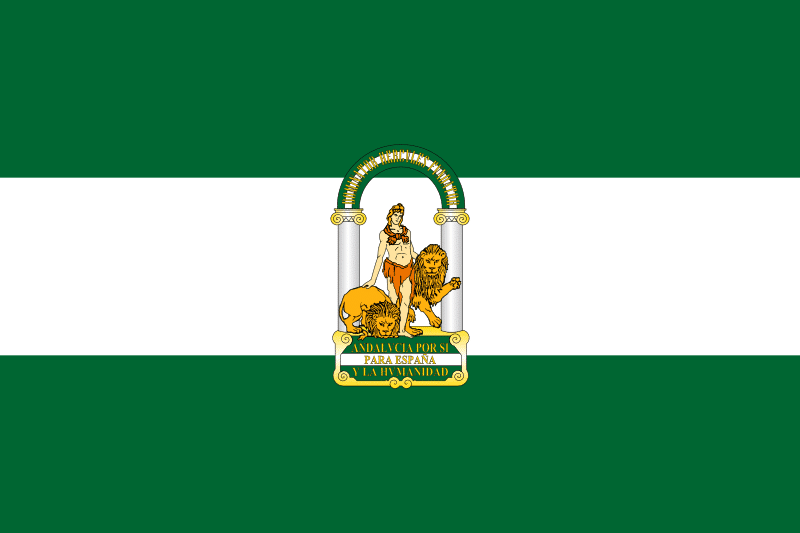Andalusia Day: A Celebration of Heritage and Progress

Andalusia Day stands as a proud testament to the rich cultural heritage and historical significance of this autonomous community in Spain. Celebrated annually on February 28th, this special day commemorates the pivotal referendum on the Statute of Autonomy of Andalusia in 1980. Join us as we delve into the vibrant history, cultural festivities, and unique aspects that make Andalusia a truly exceptional region.
History of Andalusia Day
Andalusia Day traces its roots to the historic referendum held on February 28, 1980. The Andalusian electorate’s overwhelming support marked a significant step towards autonomy, making Andalusia an autonomous community within Spain. The day is observed as a public holiday, with closures across schools, businesses, and government offices. Interestingly, some nationalist groups opt for an alternative celebration on December 4, commemorating the 1977 demonstrations demanding independence. This diversity in observance showcases the complex historical tapestry of Andalusia.
Andalusia Day Celebrations
On Andalusia Day, citizens often embrace quiet moments with family or friends. Private parties featuring traditional music, dance, food, and drink abound. Communal meals and the honoring of community service through certificates or medals add a unique touch to the celebrations. A striking visual aspect of the celebrations is the adornment of balconies with the national flag of Andalusia. Cultural competitions add an entertaining element to the festivities, fostering a sense of unity and pride. Venture into the expansive hills, rivers, and farmland of Andalusia, experiencing its diverse features. Embrace the spirit of Andalusia by decorating your surroundings with its national flag colors, dark green and white.
Schools play a crucial role in celebrating Andalusia Day with a ‘La Semana Cultural’ or cultural week. Students engage in activities such as coloring pictures related to Andalusian symbols, putting on plays, and singing the national anthem. The traditional Andalusian breakfast, “desayuno andaluz,” featuring toast with a layer of olive oil and orange juice, is a delightful part of the celebrations.
Andalusia: A City of Breathtaking Sites
Andalusia, a city renowned for its breathtaking sites, boasts enchanting castles that create a fairytale-like atmosphere. Notable among these are the Castillo de la Guardia, Castillo de Segura de la Sierra, Castillo de la Mota, Castillo de la Yedra, and Castillo de Santa Catalina.
A Blend of Agriculture and Industrialization
Despite its agrarian roots, Andalusia has witnessed exponential growth in industrialization. Comprising eight distinct parts, including Almeria, Cádiz, Córdoba, Granada, Huelva, Jaén, Málaga, and the capital city Seville, Andalusia is a diverse and evolving community.
Flamenco Art and Cultural Significance
Andalusia is renowned for introducing the world to flamenco art, officially originating in Seville. This cultural contribution has left an indelible mark on the global stage.
Unique Geographic Features
Andalusia houses the only desert in Europe, the Tabernas Desert in Almeria, making it a geographical standout.
Andalusia Day Timeline
- 711: Spain is Invaded – The Moors begin their invasion of Spain.
- 1492: The Moors Leave – The Moors eventually leave Spain, migrating elsewhere.
- 1980: The Referendum is Held – A pivotal moment as the referendum on the Statute of Autonomy of Andalusia takes place.
- 2007: A Plenary Session is Included – During the holiday, a plenary session of the Parliament of Andalusia convenes at the Teatro de la Maestranza in Seville.
Interesting Facts About Andalusia
- It has bullrings: With about 70 bullrings, Andalusia holds a prominent place in the world of bullfighting.
- It has a slogan: The Andalusian coat of arms proudly declares, “Andalusia for itself, for Spain and Humanity.”
- Its scenery is used for films: The captivating landscapes of Andalusia have served as a backdrop for numerous films.
- It hosted “Game of Thrones”: Andalusia provided the stunning settings for the popular series “Game of Thrones.”
- It has a large geode: Home to the world’s second-largest geode, the Pulpí Geode, Andalusia showcases its geological marvels.
Significance of Andalusia Day
Andalusia is distinguished by its coasts, bathed by both the Mediterranean Sea and the Atlantic Ocean, making it the only autonomous community in Spain with this special feature. Andalusia’s rich history and vibrant culture contribute to its unique identity. A celebration of Andalusia Day is an opportunity to delve into its multifaceted heritage. The presence of numerous castles, particularly in Jaén, adds a historical charm to Andalusia. Exploring these structures becomes a fascinating journey through time.
Andalusia Day Dates
- 2024: February 28 (Wednesday)
- 2025: February 28 (Friday)
- 2026: February 28 (Saturday)
- 2027: February 28 (Sunday)
- 2028: February 28 (Monday)
In conclusion, Andalusia Day encapsulates the essence of a region deeply rooted in history, culture, and a commitment to progress. As we commemorate this significant day, let us celebrate the unique tapestry that makes Andalusia a true gem in the Spanish landscape.
Observer Voice is the one stop site for National, International news, Sports, Editor’s Choice, Art/culture contents, Quotes and much more. We also cover historical contents. Historical contents includes World History, Indian History, and what happened today. The website also covers Entertainment across the India and World.

